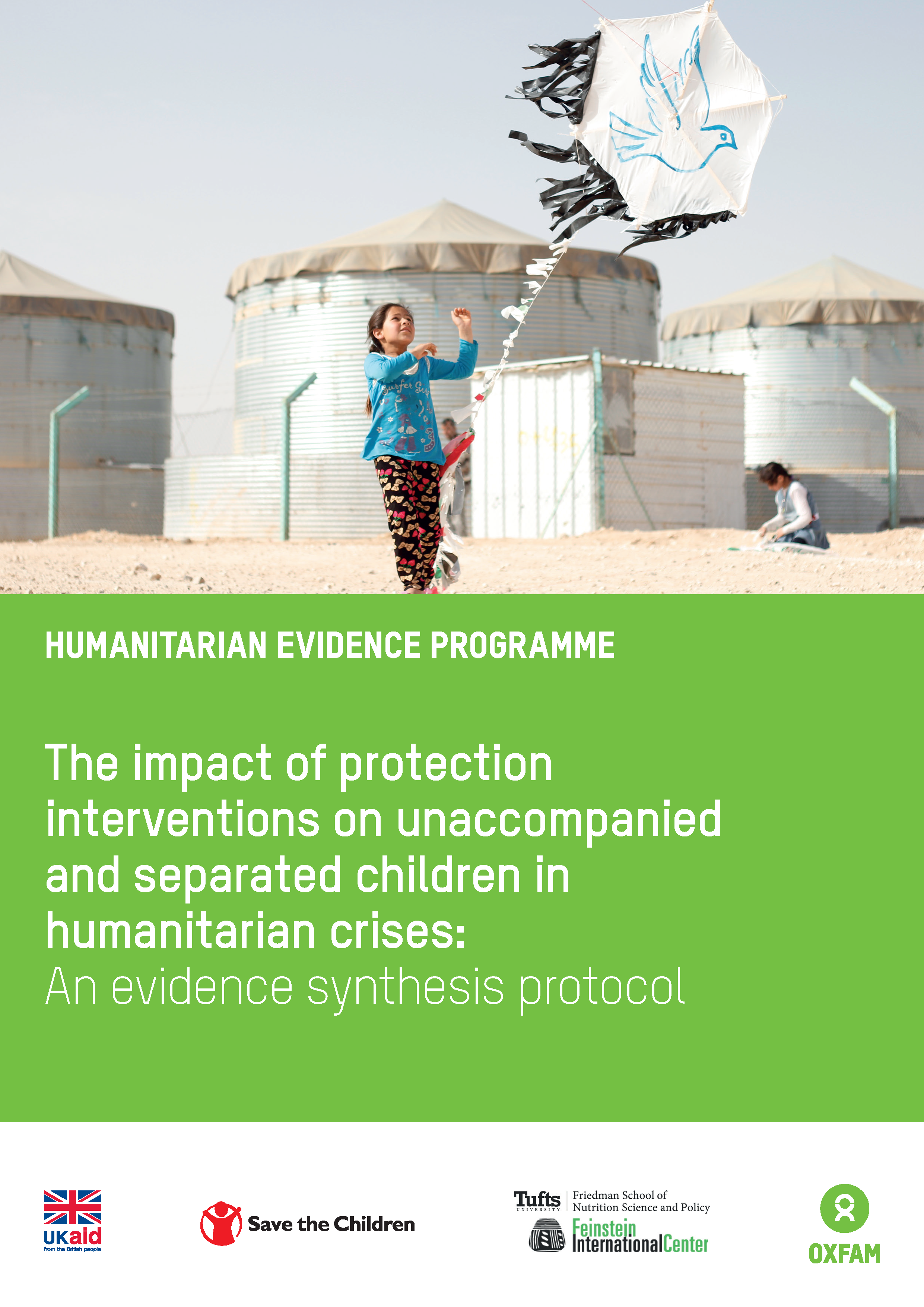This protocol details the methodology for an evidence synthesis on child protection in humanitarian crises. The evidence synthesis asks: “What is the impact of protection interventions on unaccompanied and separated children, during the period of separation, in humanitarian crises in low and middle-income countries (LMICs)?”
Please check back in the summer and fall of 2016 for results of the full review of the evidence.
This protocol is part of the Humanitarian Evidence Program, a DFID-funded partnership between Oxfam and the Feinstein International Center.







